Emmanuel, Form 4 graduate from the Class of 2020, is no stranger to innovation. The last time we caught up with him, he had developed his own automatic handwashing system to tackle hygiene challenges during the COVID-19 pandemic. Today, he’s taken his vision even further, turning local solutions into projects that impact communities across Africa.
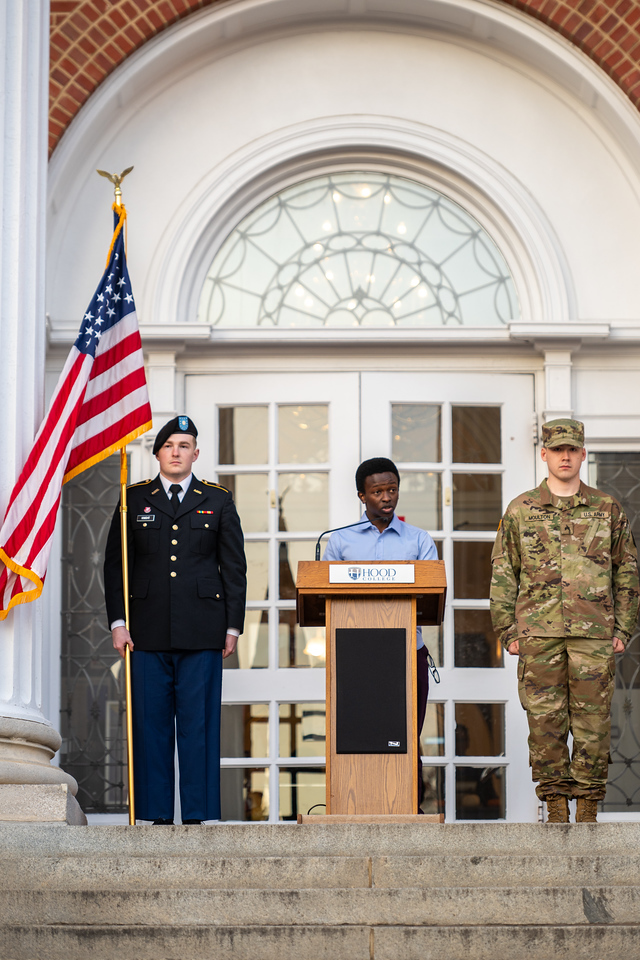
On the international stage: Emmanuel received the Davis Peace Prize in early 2024, an award that helped him establish the peace Library in Zanzibar.
During the COVID-19 pandemic, at just 18 years old, he saw the urgent need for clean water and proper hygiene to protect his community's health. Driven by his passion for children’s rights and a safe environment, he created a foot-operated handwashing machine to reduce hand contact and limit germ transmission.
His invention led to the installation of over 400 handwashing machines across northern Tanzania, significantly promoting better hygiene and helping to reduce the spread of the virus. This innovative effort quickly caught UNICEF’s attention, leading to his appointment as a youth ambassador, expanding his mission of improving health access and awareness.
Soon after, he was named one of 9 Young African Activists to Look Out for in 2022 by Global Citizen, furthering his advocacy horizon.
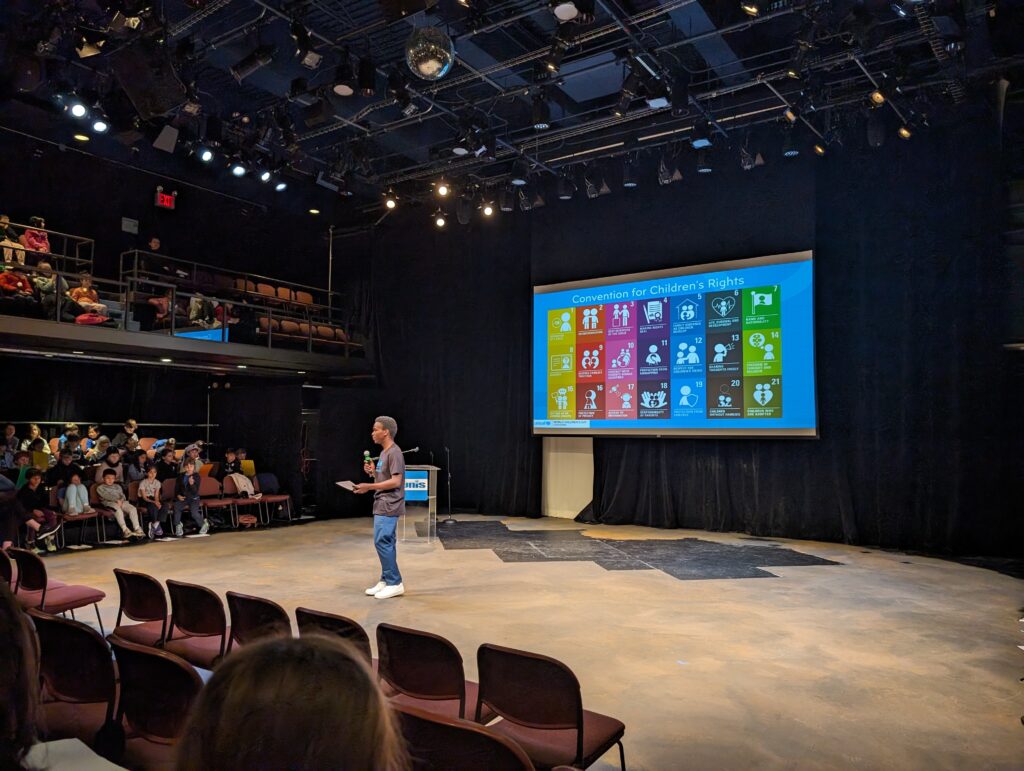
“It was an incredible honour that motivated me to keep pushing for change. This recognition opened doors for partnerships and collaborations, allowing him to scale his impact and inspire more youth to take action,” he says.
With the success of his handwashing machine, he went on to establish a community library under his peace project. The Peace Library in Kizimkazi, Zanzibar was established by Emmanuel, thanks to the Davis Peace Prize that he won in early 2024, and support from the Assalam Foundation.
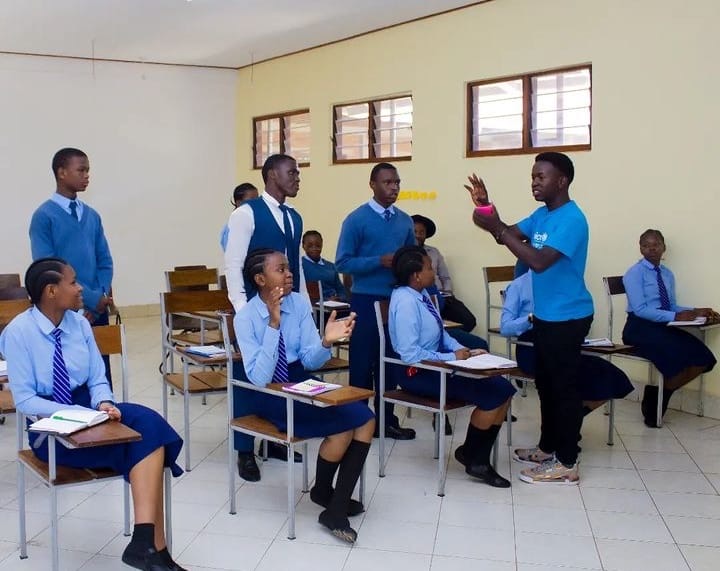
“The idea for the library was fuelled by my conviction that peace education begins with accessible knowledge. I envisioned a vibrant space where students could explore peace, leadership, and advocacy, equipping them to become peace ambassadors in their communities and fostering long-term social change,” he says.
Emmanuel describes it as more than just a library; it’s a thriving space where children can learn, connect with their cultural roots, and build community. With a theatre hall that accommodates over 400 people, the library hosts gatherings, events, and features screens displaying educational resources, opening doors to knowledge and connections beyond Zanzibar.
His mission? “I want to inspire African youth to create change,” he says.
Through workshops and public speaking, he reaches young people across the continent, rallying them to advocate for climate, education, and peace. His journey is a call to St Jude’s alumni, showing the impact they can have in leading Africa forward.
Growing up in Tanzania’s busy cities, Benson was surrounded by the roar of motorbikes and endless car horns. But beneath the everyday chaos, he saw something many missed; a pattern of problems such as youth unemployment, urban congestion, and rising pollution fuelled by an outdated way of moving people and packages.
With a childhood friend and a shared vision for a greener future, Benson co-founded FikaChu, a smart, electric bicycle delivery platform designed to tackle three major urban challenges with one bold idea. They source components from original equipment manufacturers (OEMs) in Asia, then assemble the bicycles and integrate them with their mobile app in Tanzania.
"We kept asking ourselves, what if the mobility solution could also create jobs and clean the air? That’s how FikaChu was born,” says Benson.
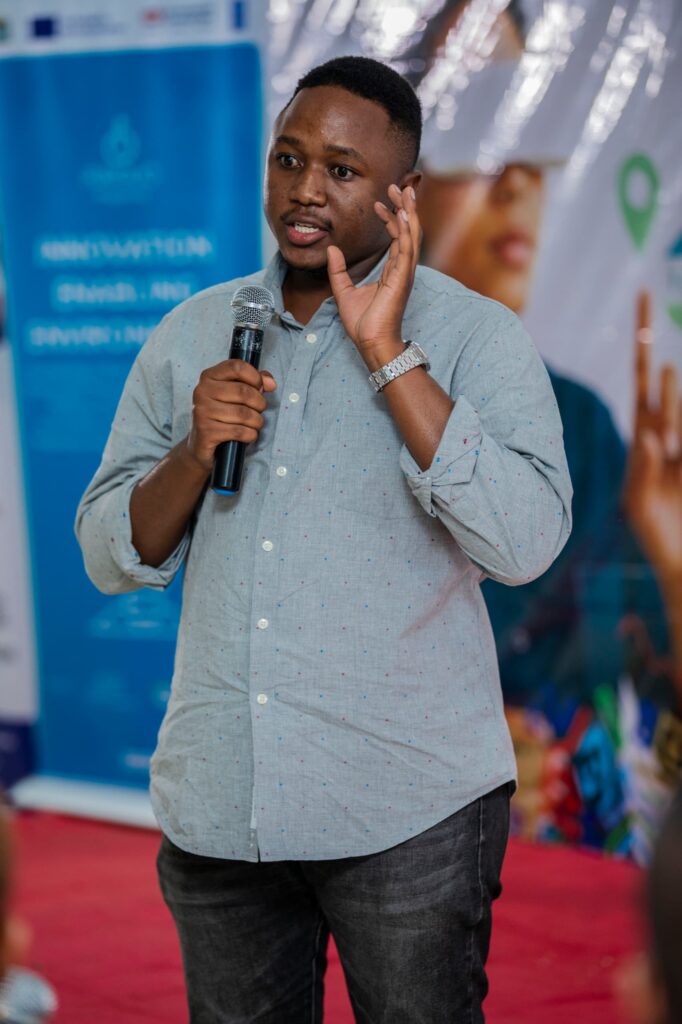
The concept is simple, but the impact is profound. Benson envisions that FikaChu connects small and medium-sized businesses with customers in Dar es Salaam, through a fleet of gig workers using electric bikes. No personal vehicle is required, just scan, ride, deliver, and return. The result? A remarkable 94% reduction in emissions compared to traditional motorbike deliveries.
“A typical internal combustion engine (ICE) motorcycle emits about 100g of CO2 per kilometre, while our electric bikes emit only 6g, that’s just 6%,” says Benson.
Earlier this year, Benson took FikaChu to the national stage at Innovation Week hosted by the Institute of Accountancy Arusha. It was his first time pitching in front of a large crowd, and he had just two minutes to make a lasting impression.
“The hardest part wasn’t the nerves. It was condensing everything our why, our how our vision into something unforgettable,” he says.
He did just that. Out of more than 30 innovators, Benson took home the first runner-up award validating that FikaChu was more than a clever idea. It was a movement in motion. Today, FikaChu is in its pilot phase, weaving through the streets of Tanzania as the team tests, adapts, and dreams bigger. They’re refining logistics, listening to feedback, and laying the groundwork for scale, all while keeping people and planet at the core of every decision.
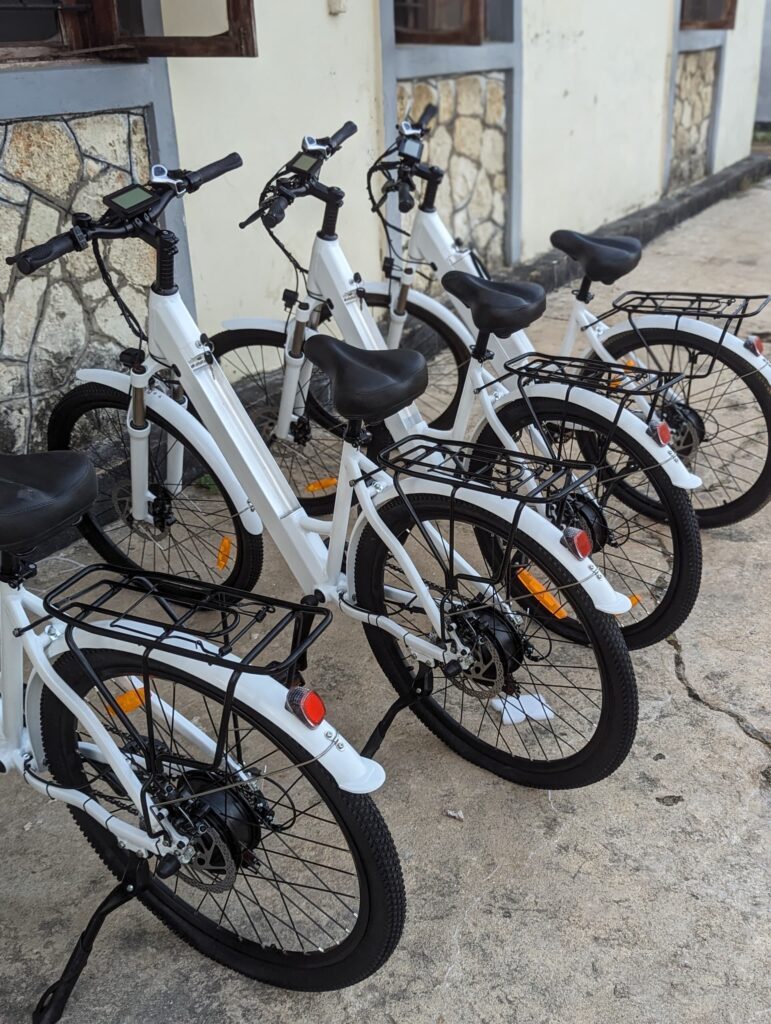
“We’re not just building a company; we’re building a community. And we’re wide open to
partnerships, support, and collaboration,” he adds.
For Benson, innovation doesn’t begin in a lab or a corner office; it begins with courage. The courage to look at a daily problem and ask, what if?
“To any young person with an idea; start. Don’t wait for the perfect moment. Fail forward if you must, but move,” he adds.
When asked about how he competes with traditional motorbikes (bodaboda) he explained their approach.
“Before accepting a delivery task, we provide the rider or customer with a trip comparison analysis. This includes the estimated time it would take using a FikaChu e-bike versus a bodaboda, the amount of fuel a motorbike would consume, and the total cost savings they would get by choosing our service. We also show how much CO2 emissions they can avoid by going electric. It’s not just about speed, it’s about making an informed, ecofriendly, and cost-effective choice,” he says
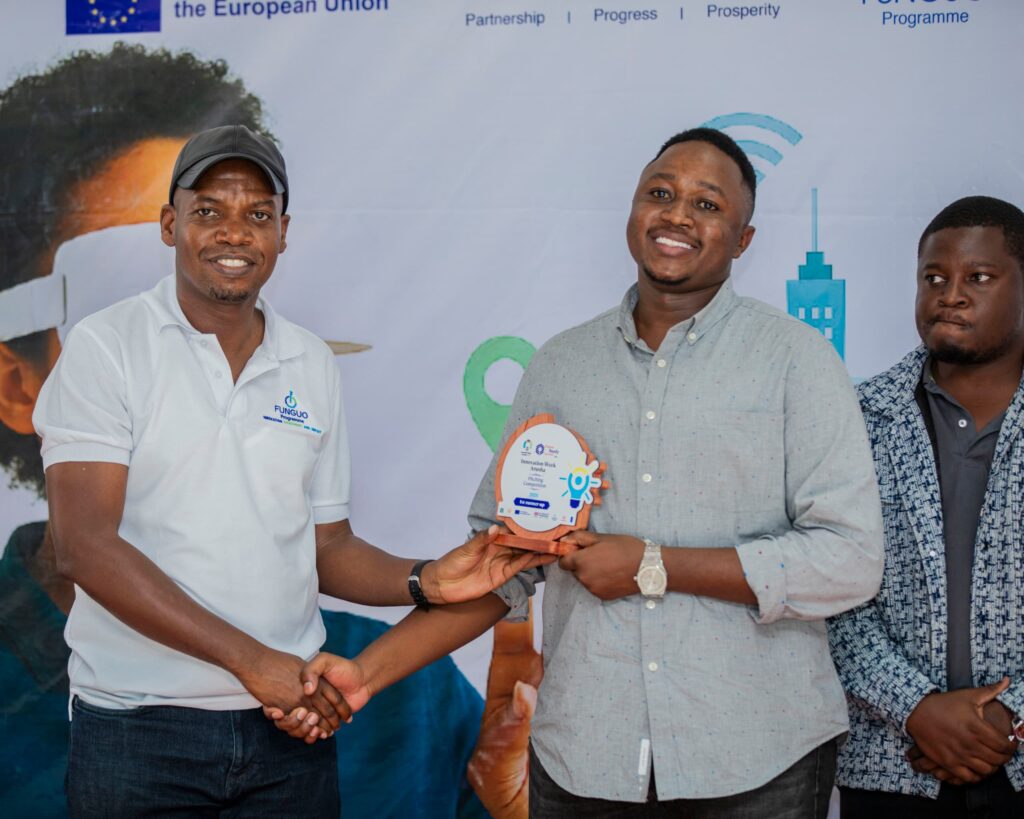
Through FikaChu, Benson isn’t just delivering goods; he’s delivering hope, a cleaner future, one ride at a time. With a growing fleet of five electric bikes, each capable of covering up to 50 kilometres on a single charge, he’s proving that small steps can drive big change. So far, FikaChu has successfully completed over 1,300 deliveries, and in the process, opened a new doorway to employment for young Tanzanians eager to earn, learn, and contribute to a greener economy.
We are immensely proud of our alumni like Benson, whose journey began with a dream to learn and make a difference. He has transformed challenges into opportunities for youth, communities, and the environment.
When Angel first walked through the gates of The School of St Jude, she was a bright student with big dreams but few resources. Thanks to the generosity of donors and sponsors, she gained not just a quality education but the confidence and tools to lead change.
Her journey began in 2017, when she and her friend Sharon shared a love for science and innovation. Their first major creation, a simple yet life-changing electric stick for the visually impaired, took them to the Project Inspire boot camp in Dodoma. That experience sparked a lifelong commitment to using innovation for good.
A year later, their banana peel fertiliser project took them to Science Week at the Nelson Mandela Institute of Science and Technology, where future African scientists, engineers and leaders learn to solve local challenges and drive progress across the region. By the time they reached A Level, Angel and Sharon were leading environmental initiatives on campus, from maintaining green spaces to inspiring fellow students to think sustainably.
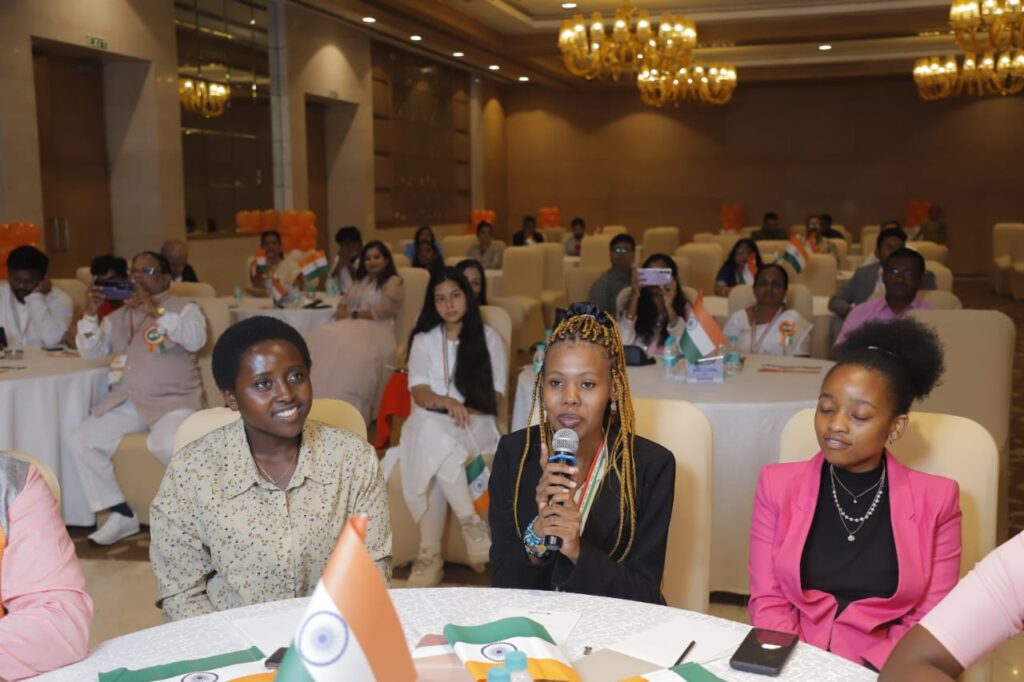
Out of this passion, Angel founded E.C.H.O. Elevating Climate Harmony Ontime, a youth-led non-governmental organisation (NGO) focused on tackling climate change. In 2024, E.C.H.O. made history by winning the prestigious Humanitarian Excellence Award from the I CAN Foundation, triumphing over entries from all 28 Indian states and more than 80 competitors worldwide.
The award recognized E.C.H.O.’s tangible impact on:
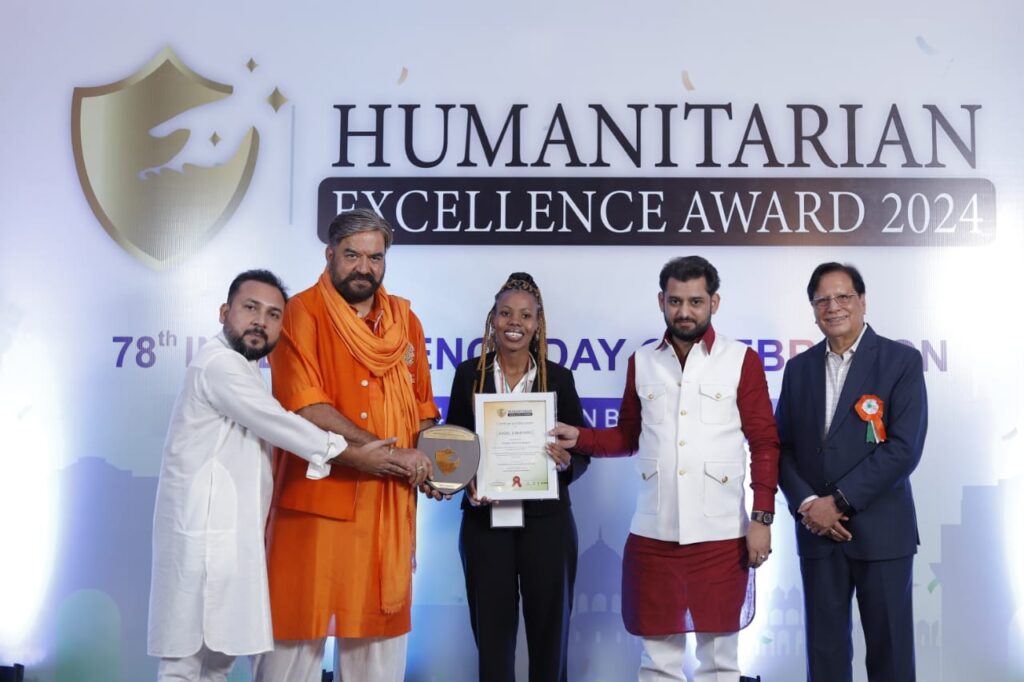
Now back in Tanzania after completing her studies in India, Angel is determined to bring her expertise home and is designing solar-powered cooling systems for farmers, developing sustainable irrigation, and building climate resilience in vulnerable communities.
Angel’s story is your story too. Without your generosity, this young leader might never have had the chance to dream this big, let alone inspire change on a global stage. Your support is not just educating students. It is equipping them to tackle some of the world’s most pressing challenges.
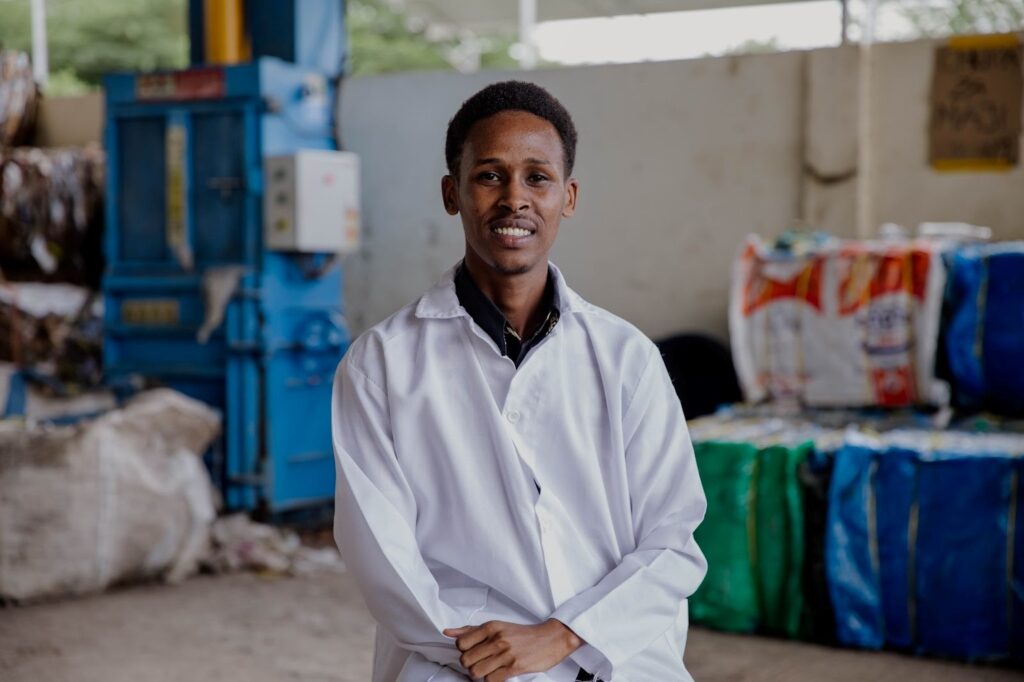
A group of St Jude’s students and alumni recently participated in Arusha Innovation Week, joining changemakers across the region to tackle real-world challenges with bold ideas. Among them was David, an alum who won first place in the event’s prestigious pitching competition for his award-winning innovation - organic fertilisers made from human hair - earning him a spot at the national finals in Dar es Salaam this month.
Really great! I was very happy when they announced I had won. I love what I’m doing and I’m always thinking about ways I can share it with more people. There were 13 people in the pitching competition. We each did a two-minute pitch in front of the panel. I prepared a pitch deck the day before. The same event also happened in many regions across Tanzania, and all the regional winners will meet in Dar es Salaam for the final competition on 12 May.
Make sure you connect with both the audience and the panel. You can do this by having a strong opening that makes your pitch stand out. I do this by starting with a question or coming up with an engaging opening line. This gets their attention immediately. I also talk about the most important thing first as time is limited. The rest of the information can always be put into the Q&A.
So many things!I loved seeing everybody’s different ideas. The audience was full of innovation experts, and I got to meet them all afterwards. I was also so happy to see people supporting young innovators. Young people need a platform to show their ideas.
There is going to be a big space to exhibit everyone’s ideas, and we will get to meet lots of people from different organisations and institutions. It’s also being held in the same place where, seven years ago, we competed in a national science competition after showcasing this very project at St Jude’s Science Fair. There, we came second among secondary schools from across Tanzania. So, it’s going to be a very full-circle moment.
As a young mind, you have to think of future problems. Try to identify the problems that people might face in the future, not just the ones we see today. And keep going! You’ll always be happy waking up to something you love doing.
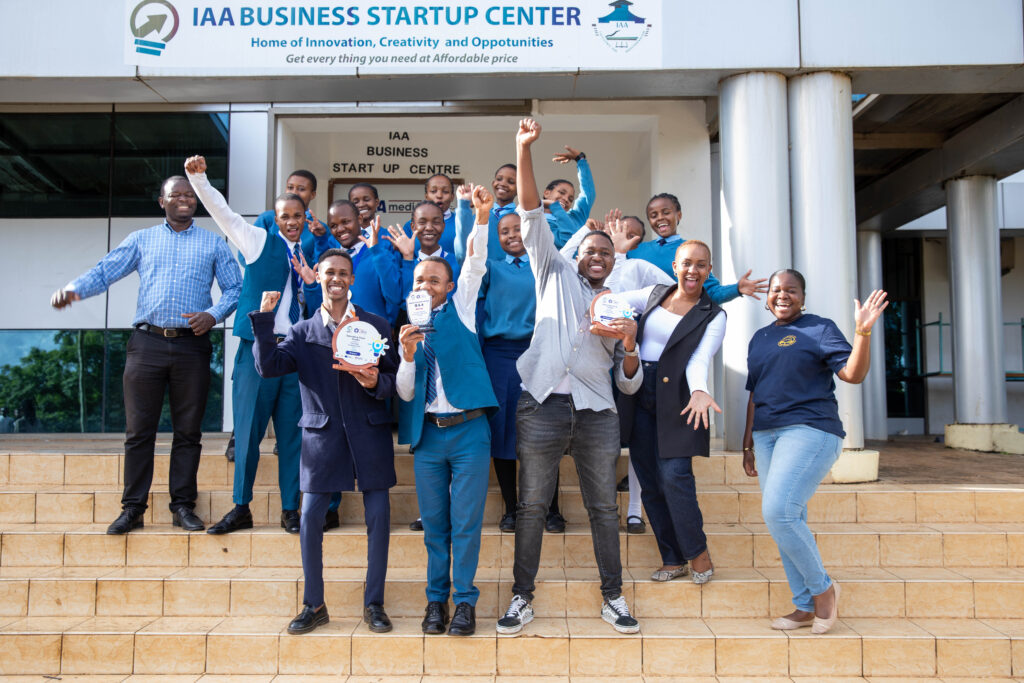
St Jude's has always been a place where young minds are nurtured and bold ideas are born. However, turning a passion into a sustainable business is no easy task - it requires practical skills, mentorship, and the right kind of support. To help bridge this gap, the school recently launched the Next Frontier Incubator and Small Grants Program, designed to help alumni transform their entrepreneurial dreams into reality.
The 20-week program, which kicked off in January, offers 25 alumni the opportunity to develop essential business skills through expert mentorship, tailored resources, and hands-on training in critical areas such as business planning, financial management, goal-setting, and legal compliance.
Program Specialist Neema explained that the initiative was established to help alumni with innovative business ideas transform them into successful ventures and build a strong foundation for long-term growth.
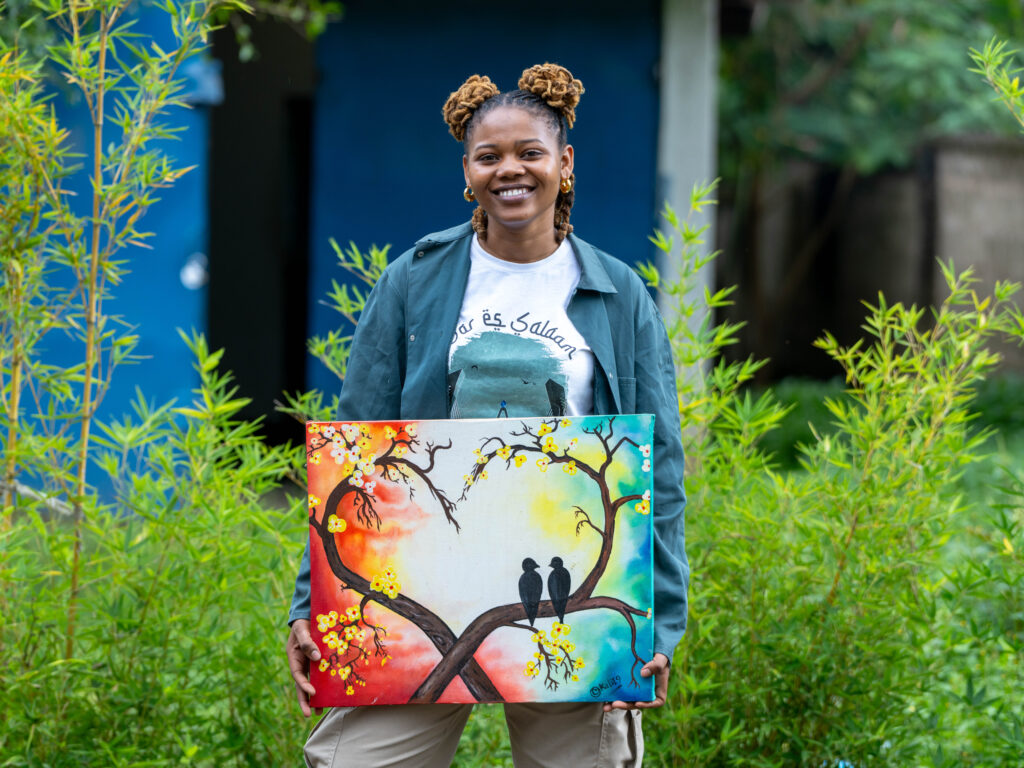
“We found that many alumni had incredible ideas but didn't know the next steps. They were caught between creative development and the practical aspects of business management. This program helps bridge that gap by offering the resources needed to turn these ideas into a viable business,” Neema says.
The inaugural group includes ideas from a range of industries, including art, manufacturing, construction, and transport. They each submitted a business proposal detailing their vision, goals, and the challenges their businesses aim to address, which formed the basis of their admission to the program.
“Many of these ideas aim to solve real-world problems and make a positive impact on people and the planet. Some are startups that, despite winning awards, are facing challenges in scaling, while others are still in the early stages of development and getting their ideas off the ground. The cohort meets twice a week for expert-led sessions and assignments to help them refine their goals, develop their mission statements, and map out their next steps,” Neema says.
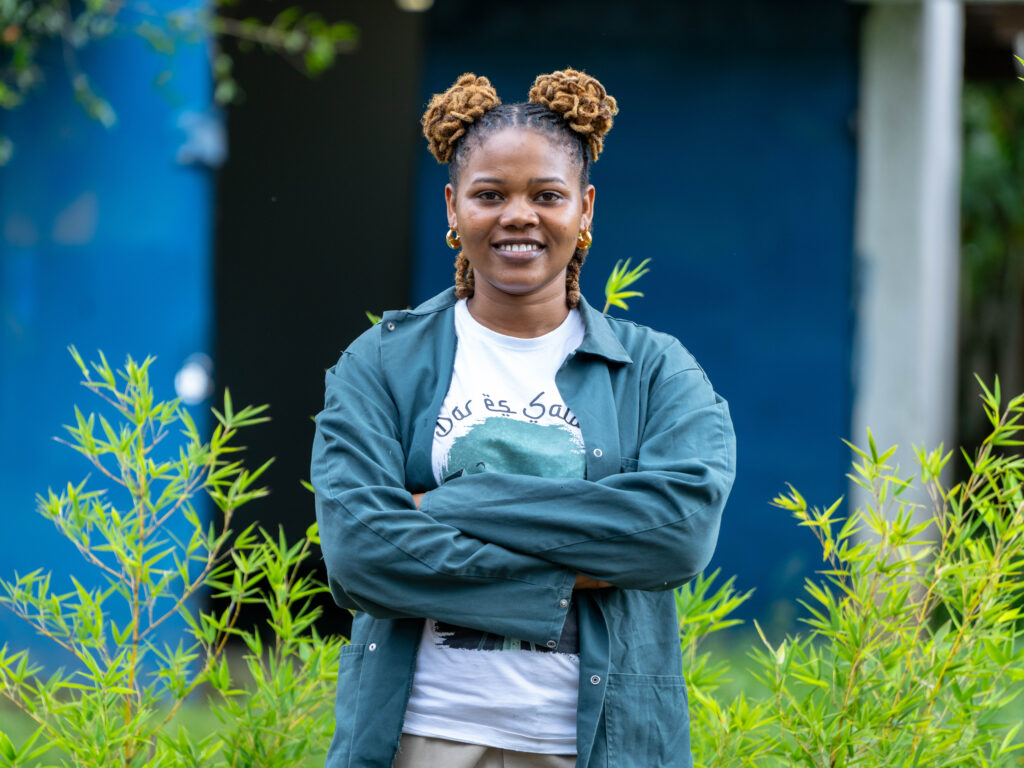
At the end of the program, the students will pitch their ideas to an external panel of experts who will assess their business models, scalability, and community impact. Successful pitches will receive grant funding up to US$5,000 to support key areas such as product development and marketing.
One alum, Queen, Class of 2021, said she jumped at the opportunity to be part of the program. After studying art and design in Dar es Salaam, she founded The Kids Hub, an art workshop offering creative classes in painting, jewellery making, and digital art for children and young adults in Arusha.
“I've always had a passion for art, and I wanted to create a space where young people could explore their creativity,” says Queen, who has a studio in the centre of Arusha where she runs her classes.
“Art is often overlooked in schools, so I wanted to provide a space where kids could develop their skills, express themselves, and sell their work. We've already held two classes, and the response has been incredible.”
Queen's ultimate goal is to expand The Kids Hub into a larger space where people of all ages can learn and appreciate art - a goal she feels is within reach thanks to the insights gained from the program.
“The Next Frontier Incubator and Small Grants Program has been a real eye-opener. It's hands-on and practical, and the sessions have given me so many tools to improve my business. I've learned how to manage stress, scale my business, and navigate the financial side. It's a complete package that has really set me up for success,” says Queen.
“I'm also learning so much from my fellow participants, as we all exchange advice and insights. My goal is to run regular classes and continue to grow the business, and by the end of this program, I'm confident I'll be able to achieve that.”
In addition to supporting the entrepreneurial endeavours of alumni, St Jude's has also launched a Pre-Incubator Program for current high school students. This extracurricular club serves as a stepping stone into the Next Frontier Incubator and Small Grants Program, offering students the chance to explore entrepreneurship as a potential career path from an early age.
“The Pre-Incubator Program provides students with the tools and support they need to develop their ideas and prepare for the full incubator program if they wish to pursue it professionally after graduation,” Neema explains.
“By introducing entrepreneurship at the high school level, we're encouraging students to see it as a viable career path, and empowering them to become innovators, problem-solvers, and leaders both within their communities and beyond.”
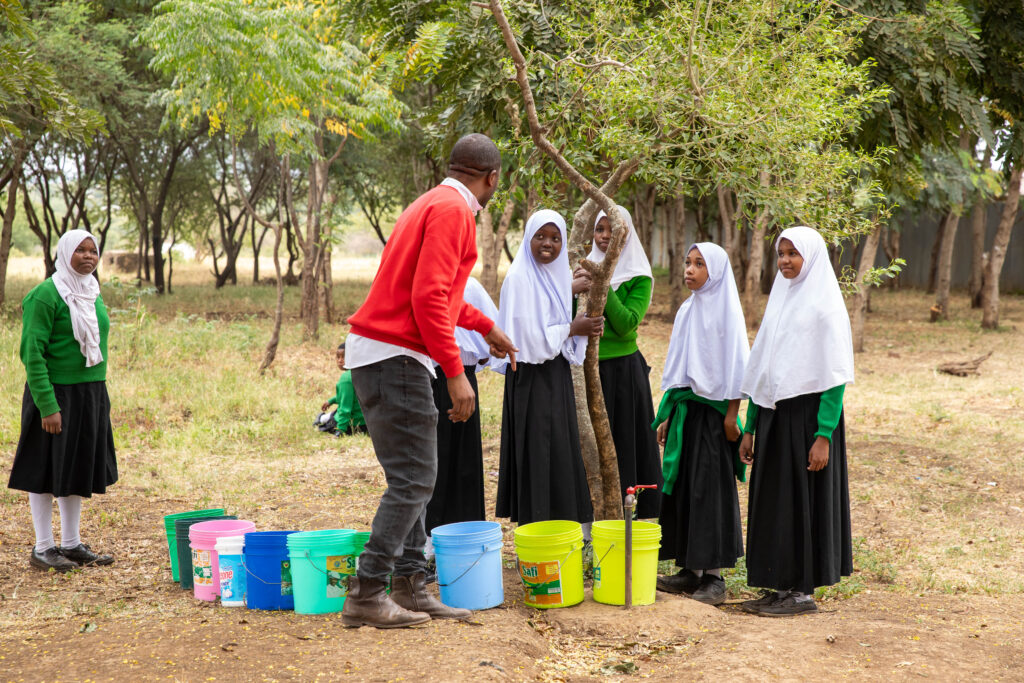
Like most students completing secondary education at St Jude's, Irene opted to join the Beyond St Jude's Scholarship Program (BSJSP). The BSJSP allows secondary school graduates to give back to the community as volunteer teachers in understaffed government schools or in various placements throughout St Jude's. Those who successfully complete their community service placement may then be eligible to receive a BSJSP scholarship to pursue higher education.
"I spent a year teaching English and Civics at a local government school in Arusha town, not far from St Jude's," shares Irene, who is currently a university scholar. "To be honest, my volunteering experience was good. I enjoyed teaching and being one of the adults that students can look up to," she adds.
Having spent over 12 years as a student at St Jude's, Irene understood how far a supportive learning environment could go to enhancing academic performance. Thus, she was particularly excited at the opportunity to share her knowledge and skills with others.
"I was privileged to attend St Jude's, which offers a wealth of resources, including computers, books, sports facilities, and educational trips, for an exceptional learning experience. But others weren't so lucky and this became clear during my Community Service Year (CSY)," narrates Irene.
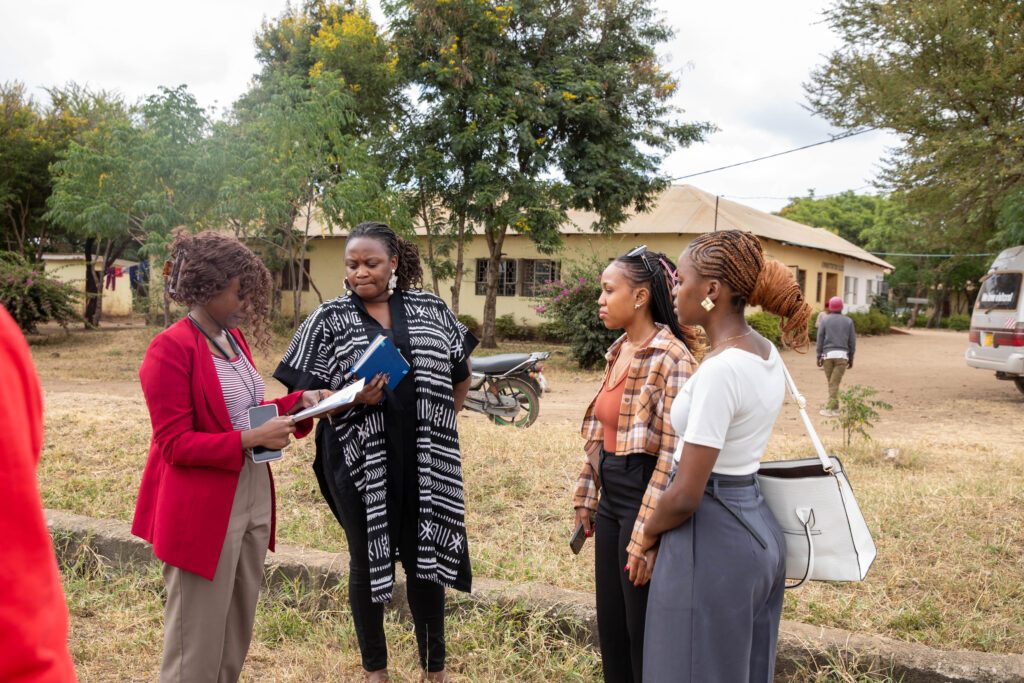
She noticed that there was only one water tap for the entire school of 600+ students. Students had to wait in long queues just to fill a cup of water. There wasn't enough water to properly conduct science experiments for students, clean the school's infrastructures, and maintain the environment. Irene was deeply disturbed by the problem and resolved to find a lasting solution for it.
"The volunteering experience left me with the belief that even the smallest actions can have great value to the community. This inspired my passion for volunteering and helping my community in any capacity I can," reflects Irene.
Soon, after completing her community service year, Irene won a scholarship grant to pursue higher education in neighbouring Kenya. She was fortunate to join the same university with her long-time friend and fellow St Jude's scholar, Queen.
Like Irene, Queen had joined St Jude's as a Standard 1 student in 2007 and went on to spend the next 13 years at the school. One of her most favourite earliest memories at St Jude's was being mesmerised by the size of the school.
"I was blown away by how big the school was, from the playing fields, to the library, dining hall, and the school buses. I was shy at first because I couldn't speak much English. But it all changed within a few years; I became fluent and fell in love with my favourite subject, history," she explains.
Upon completing her secondary school education, she too, joined the Beyond St Jude's Scholarship Program (BSJSP) and spent a year as a volunteer teacher at a government school in Arusha. When the pair linked up in university, they began looking into how they could support less fortunate students back in Tanzania.
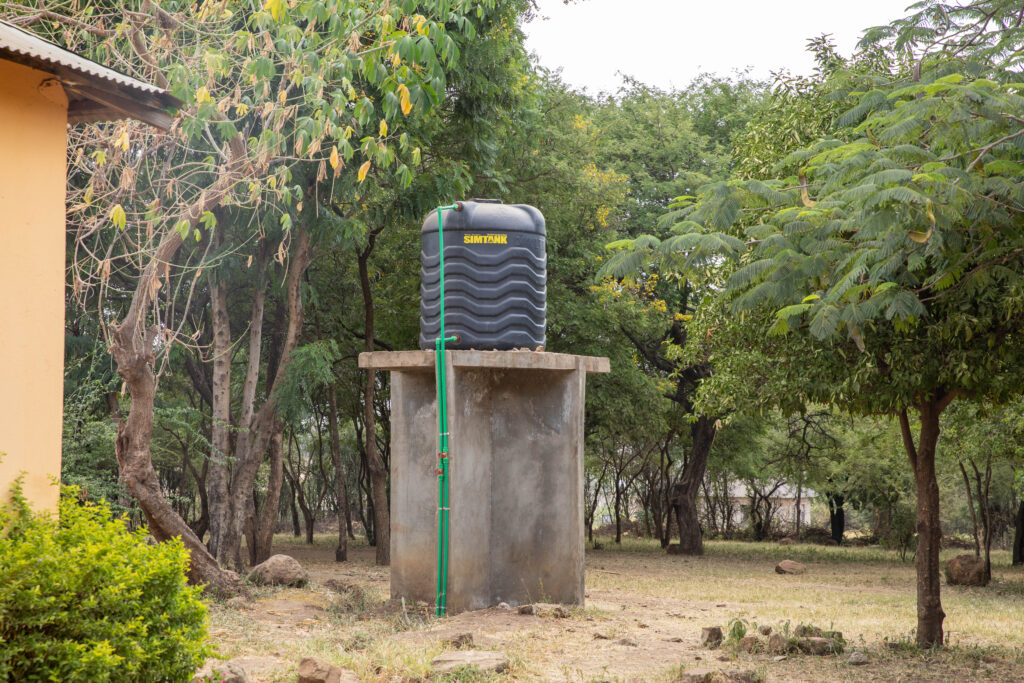
"As part of our scholarship, each of us was entitled to a one-time funding to support a project of our choice within the community. We discussed this amongst ourselves and agreed to install a water system at the government school that Irene had once volunteered in as a teacher," explains Queen.
With support from St Jude's and the external funding, the pair financed the construction of a water system at the school, which involved pumping water from a source 900 metres away. They also installed several drinking water stations throughout the school and water taps in the toilets and laboratories.
"It's a dream come true for us, to give back and create a better learning environment for others," shares Irene passionately.
St Jude's alumni continue to embrace the school's values of Respect, Responsibility, Kindness, and Honesty whenever they go. Through the Alumni Association, they regularly give to support the school financially and volunteer their time and expertise during school events. Beyond St Jude's, they are active within their communities, organising orphanage visits, launching businesses, providing employment to others, and so much more.